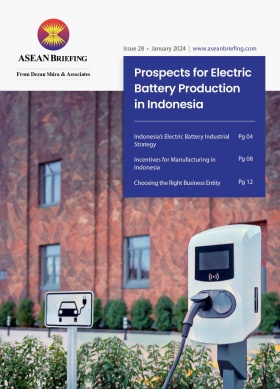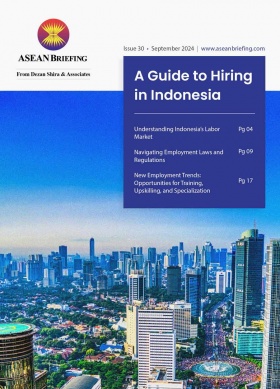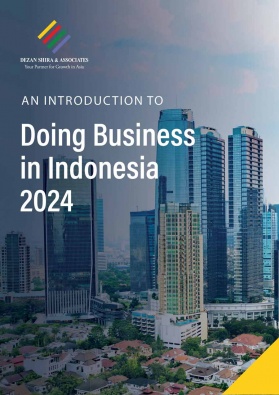Indonesia Expands E-Visa on Arrival: A Catalyst for Tourism and Investment Growth
Indonesia is taking significant strides to elevate its global standing in tourism and business travel by expanding its e-Visa on Arrival (e-VOA) service to 97 countries. Starting in December 2024, this initiative simplifies entry for citizens of key source markets, including Australia, the United States, Germany, and Singapore. While primarily aimed at boosting convenience for travelers, the e-VOA expansion aligns with Indonesia’s broader goals of attracting investment, revitalizing tourism, and strengthening its position as a global travel hub.
E-Visa expansion: A timely boost for Indonesia’s tourism recovery
The e-VOA initiative builds on an impressive rebound in Indonesia’s tourism sector. In 2023, the country welcomed 11.7 million international visitors—a 98.3 percent increase compared to 2022. This surge was driven by top source countries like Malaysia, Australia, Singapore, China, and Timor Leste. As of October 2024, Indonesia recorded nearly 9.1 million foreign tourists. Although this figure remains below pre-pandemic levels, experts predict 2024 could become a record-breaking year for tourism.
Investment opportunities in super-priority destinations
The Ministry of National Development Planning (Bappenas) is actively working to transform Indonesia’s tourism landscape through its National Tourism Destinations Master Plan (RIDPN/ITMP). The plan prioritizes infrastructure development, road access improvement, and community participation in areas such as Lake Toba, Borobudur-Yogyakarta-Prambanan, Raja Ampat, and Wakatobi. These “super-priority destinations” are at the heart of Indonesia’s strategy to diversify its tourism offerings.
For investors, these initiatives present opportunities in sustainable tourism projects, eco-lodges, and luxury hospitality ventures. Enhanced air connectivity and infrastructure in these regions will create fertile ground for foreign direct investment, particularly in untapped areas that appeal to adventure and eco-conscious travelers.
Economic impact: Tourism as a pillar of growth
Tourism is a cornerstone of Indonesia’s economy, and its contribution is expected to grow significantly over the next decade. By 2030, the sector’s share of GDP is projected to reach five percent, driven by efforts to enhance infrastructure, promote sustainability, and diversify destinations. In terms of foreign exchange earnings, the industry is anticipated to generate US$32 billion to US$39 billion by 2029, reflecting the immense economic potential of a thriving tourism sector.
Additionally, tourism is a major driver of employment. By 2030, an estimated 29 million Indonesians will work in tourism-related jobs, highlighting the sector’s role in socio-economic development. The e-VOA expansion will directly contribute to these goals by boosting visitor numbers and stimulating demand for services, accommodations, and local products.
Strengthening air connectivity and digital inclusivity
One of the key pillars of Indonesia’s eight-step tourism strategy is enhancing air connectivity. Direct flights from major source markets, coupled with the streamlined e-VOA process, will make Indonesia a more accessible and attractive destination for international travelers. This initiative not only benefits leisure tourists but also supports the burgeoning business travel and MICE (Meetings, Incentives, Conferences, and Exhibitions) sectors.
Digital inclusivity is another critical component. The e-VOA system is a testament to Indonesia’s commitment to integrating technology into its tourism ecosystem. The digital platform reduces friction in the travel experience while providing valuable data on traveler demographics and preferences.
Regional development: Spreading the benefits of tourism
While Bali and Jakarta remain Indonesia’s primary tourist hubs, the e-VOA expansion is expected to drive more visitors to emerging destinations. Regions such as Flores, Sulawesi, and Sumatra benefit from increased visibility and accessibility. Investments in regional airports, eco-tourism facilities, and community-based projects are essential to unlocking these areas’ potential.
The government’s “10 New Balis” initiative exemplifies this vision, aiming to decentralize tourism and distribute economic benefits more evenly across the archipelago. This presents an opportunity for investors to enter underdeveloped markets with high growth potential.
Unlocking Indonesia’s tourism and investment potential
Expanding Indonesia’s e-VOA to 97 nationalities is a transformative move with far-reaching implications for the country’s tourism and investment landscape.
For businesses and investors, this is the time to align with Indonesia’s evolving tourism sector. Whether through luxury resorts, eco-tourism projects, or digital solutions, the expanded e-VOA can drive a new era of growth and innovation in one of Southeast Asia’s most dynamic economies.
About Us
ASEAN Briefing is one of five regional publications under the Asia Briefing brand. It is supported by Dezan Shira & Associates, a pan-Asia, multi-disciplinary professional services firm that assists foreign investors throughout Asia, including through offices in Jakarta, Indonesia; Singapore; Hanoi, Ho Chi Minh City, and Da Nang in Vietnam; besides our practices in China, Hong Kong SAR, India, Italy, Germany, and USA. We also have partner firms in Malaysia, Bangladesh, the Philippines, Thailand, and Australia.
Please contact us at asean@dezshira.com or visit our website at www.dezshira.com and for a complimentary subscription to ASEAN Briefing’s content products, please click here.








